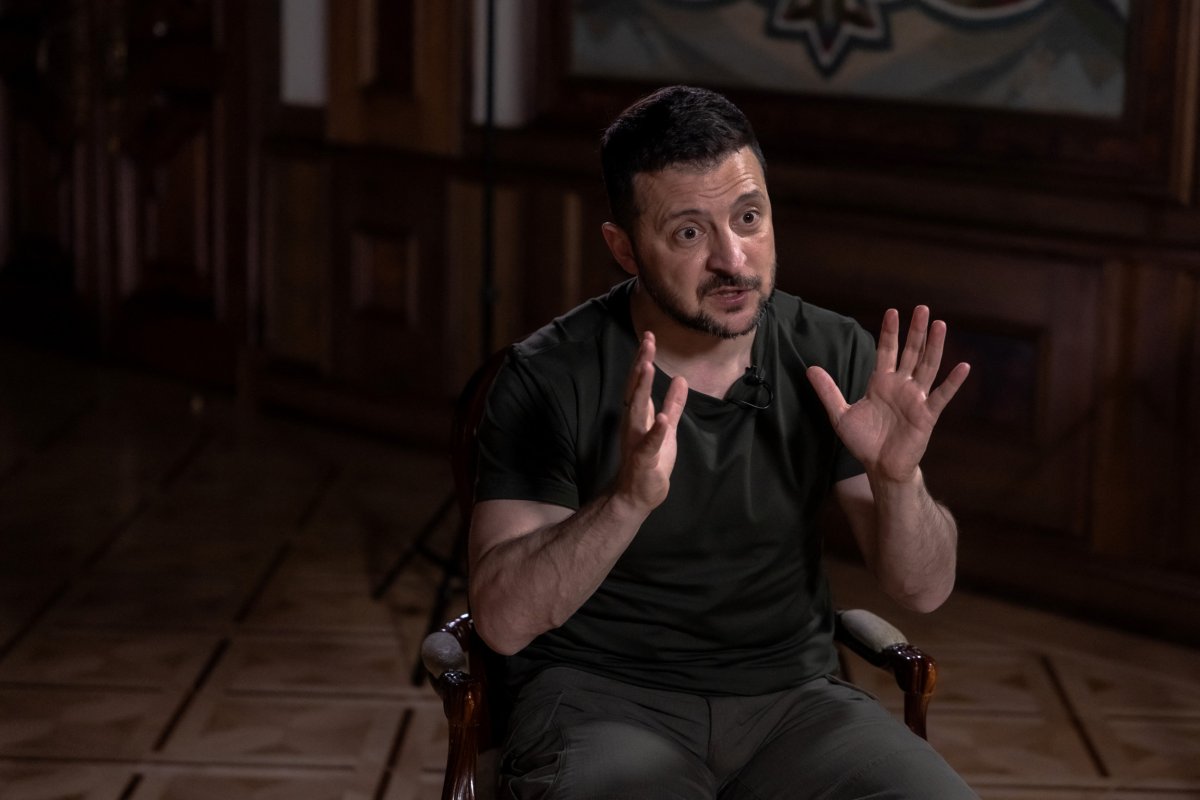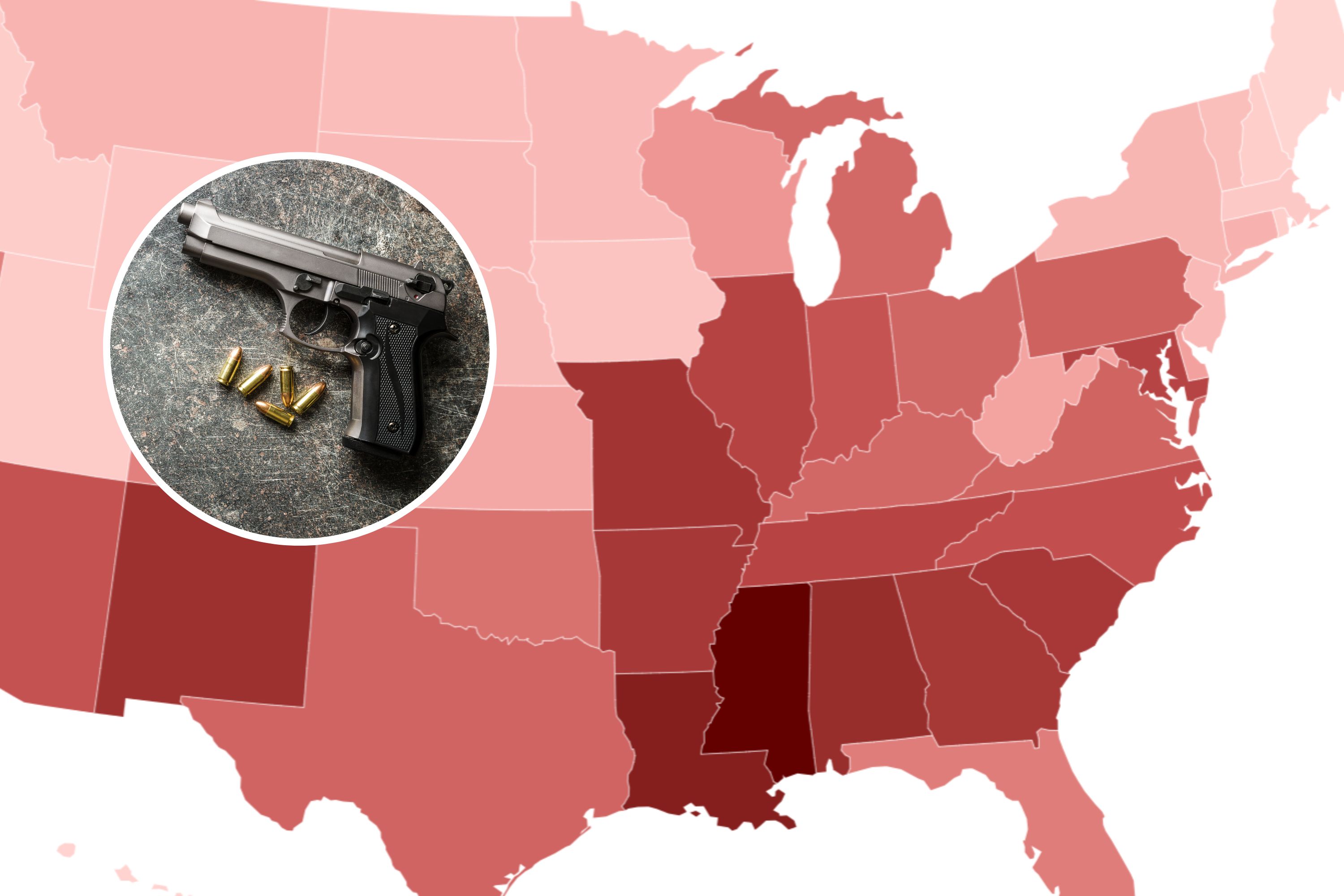The clock is ticking on the arrival of further U.S. military aid for Ukraine but in regretting its delay former president Viktor Yushchenko has already said the frontline "doesn't take vacation."
Ukraine may soon count on more artillery, air defense interceptors and other ammunition but as Russian president Vladimir Putin sees a window of opportunity before its arrival, Kyiv and its allies might rue an opportunity lost.
Before the $61 billion U.S. package finally passed last month can meaningfully makes its presence felt on the battlefield, Russia has been taking advantage of the West's tardiness, as well as problems with Ukraine's mobilization and fortifications.
U.S. aid delays
Amid the wrangling on Capitol Hill, Kyiv's forces had to conserve artillery and other resources as Russia seized around 308 square miles of Ukrainian territory so far this year—a third more than the 230 square miles gained in the whole of 2023.
"The inability to rely on timely aid disrupts crucial aspects of military planning, from recruitment to training," said Leon Hartwell, senior associate at the London School of Economics think tank, LSE IDEAs.
"It forces Ukrainian forces to ration critical resources, uncertain whether replacements will arrive promptly," he told Newsweek.
The EU has supplied less than a third of the 500,000 artillery shells by March than it had pledged. There are also delivery hold-ups in the much-touted F-16 fighter jets.
"Given Russia's adaptability, the delay of the F16s means that by the time they reach the battlefield, their effectiveness will have significantly diminished compared to when they were initially required," said Hartwell.

Fortification problems
On May 10, Russia launched an offensive in the north-eastern Kharkiv region likely aimed at stretching Kyiv's resistance on eastern front lines and creating a buffer zone by the border. Thousands have been evacuated from the town of Vovchansk inside the border to Kharkiv city, around 40 miles away.
"Russia has battlefield momentum, but this is not the result of a battle. The Russian troops simply entered an area without resistance," said Cédomir Nestorovic, professor of geopolitics at ESSEC Business School in Singapore, "There were no fortifications and no troops opposing the Russian advance on the Ukrainian side."
Ukraine is having problems fortifying the very first defense lines because Russian forces keep shelling and bombarding the construction and engineering crews, said Viktor Kovalenko, a Ukrainian political analyst who served in Ukraine's forces in 2014 and 2015.
"This is the major reason why the engineering crews couldn't fortify the outskirts of the city of Vovchansk," Kovalenko told Newsweek.
"Moreover, in March, President Zelensky made a mistake by dismissing the commander of Support Forces, General Dmytro Hereha," he said. "He corrected this mishap in May by reinstating him, but this disrupted the fortification process for two months."
Ukraine has been building multi-layered fortifications in five regions, including the contested eastern region of Donetsk although military secrecy means details are not public. "Honestly, this should have started in 2014—or at least months before the second invasion, but it's better late than never," Kovalenko added.

Mobilization issues
Since the relative failure of Ukraine's counteroffensive in 2023 Kyiv has had had trouble replenishing dwindling troop numbers. Kyiv's forces "couldn't keep every spot that was vulnerable as heavily protected as they might like and so they had to make choices about where to put their forces," said David Silbey, a military history and battlefield expert who is associate professor of history at Cornell University.
"The main Russian effort had been in the central region of the line, around Donetsk, and so my sense is that's where the Ukrainians concentrated their forces," he told Newsweek. "That's causing them problems now with the Russian thrust towards Kharkiv."
A new draft law passed by Ukrainian lawmakers last month came into effect on Saturday, aimed at boosting troop levels by lowering the minimum age for conscription from 27 to 25 and replacing conscription with military training for men aged between 18 and 25.
The debate about how to draft the Ukraine's population has been a sensitive one, since President Volodymyr Zelensky announced in December the need for 500,000 recruits, after firing officials accused of taking bribes from those seeking to avoid the frontlines.
"When I was mobilized 2014 during the first Russian incursion, I was upset to see that none of my friends, neighbors, or schoolmates joined me," Kovalenko said. "They ignored their notices for bribes and symbolic fines or hid behind fake documents of being unable to serve."
Russia "wouldn't occupy much Ukrainian land if the draft system functioned properly," said Kovalenko, who is hopeful that mobilization will be effective.
"President Zelensky has to find a balance between his society's and the army's interests," he said, "This reform is not primarily aimed at matching the Russian troops' numbers because Ukraine doesn't have as many men as Russia."
"The reform emphasizes building strategic resilience and military strength to deter Russia now and in the future."
Striking targets in Russia
U.S missile systems were given to Kyiv on the condition that they would not be used to strike targets in Russia, the Wall Street Journal reported. But Ukraine has reportedly asked the U.S. to lift this caveat in light of the onslaught it faces in Kharkiv where Moscow has made its biggest territorial gains in almost 18 months.
"This one-sided prohibition allows Russian forces to assault Ukrainian positions with impunity, leaving Ukrainian defenders unable to effectively retaliate or adequately protect themselves," said Hartwell. "This leaves Ukraine in the precarious position of attempting to defend itself with one hand tied behind its back."
Uncommon Knowledge
Newsweek is committed to challenging conventional wisdom and finding connections in the search for common ground.
Newsweek is committed to challenging conventional wisdom and finding connections in the search for common ground.
About the writer
Brendan Cole is a Newsweek Senior News Reporter based in London, UK. His focus is Russia and Ukraine, in particular ... Read more





